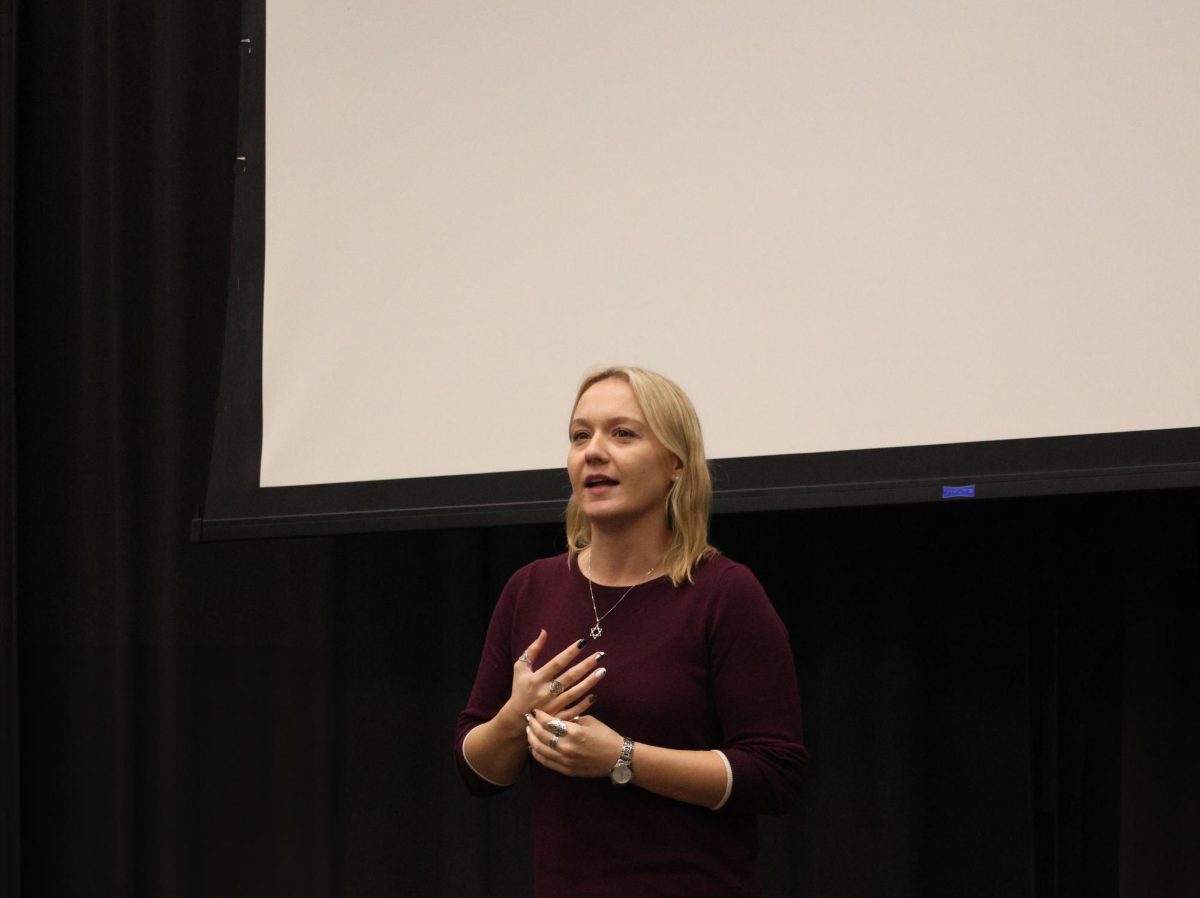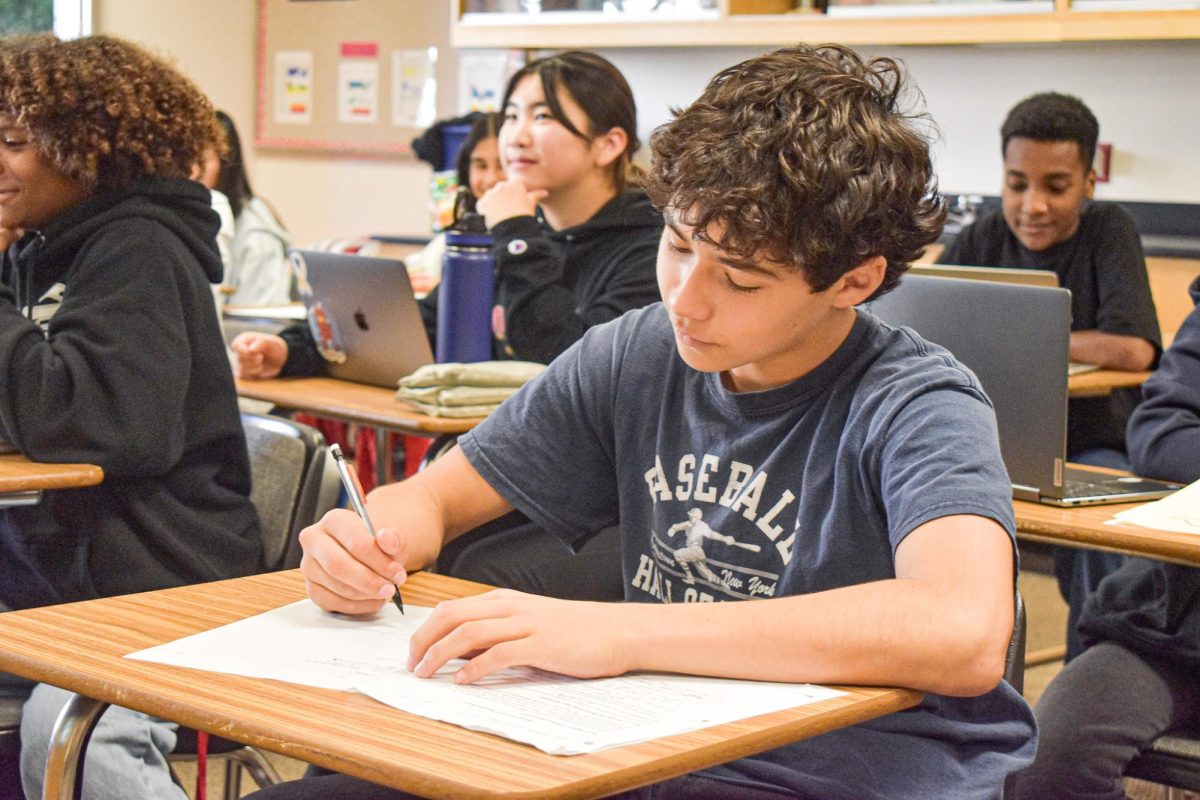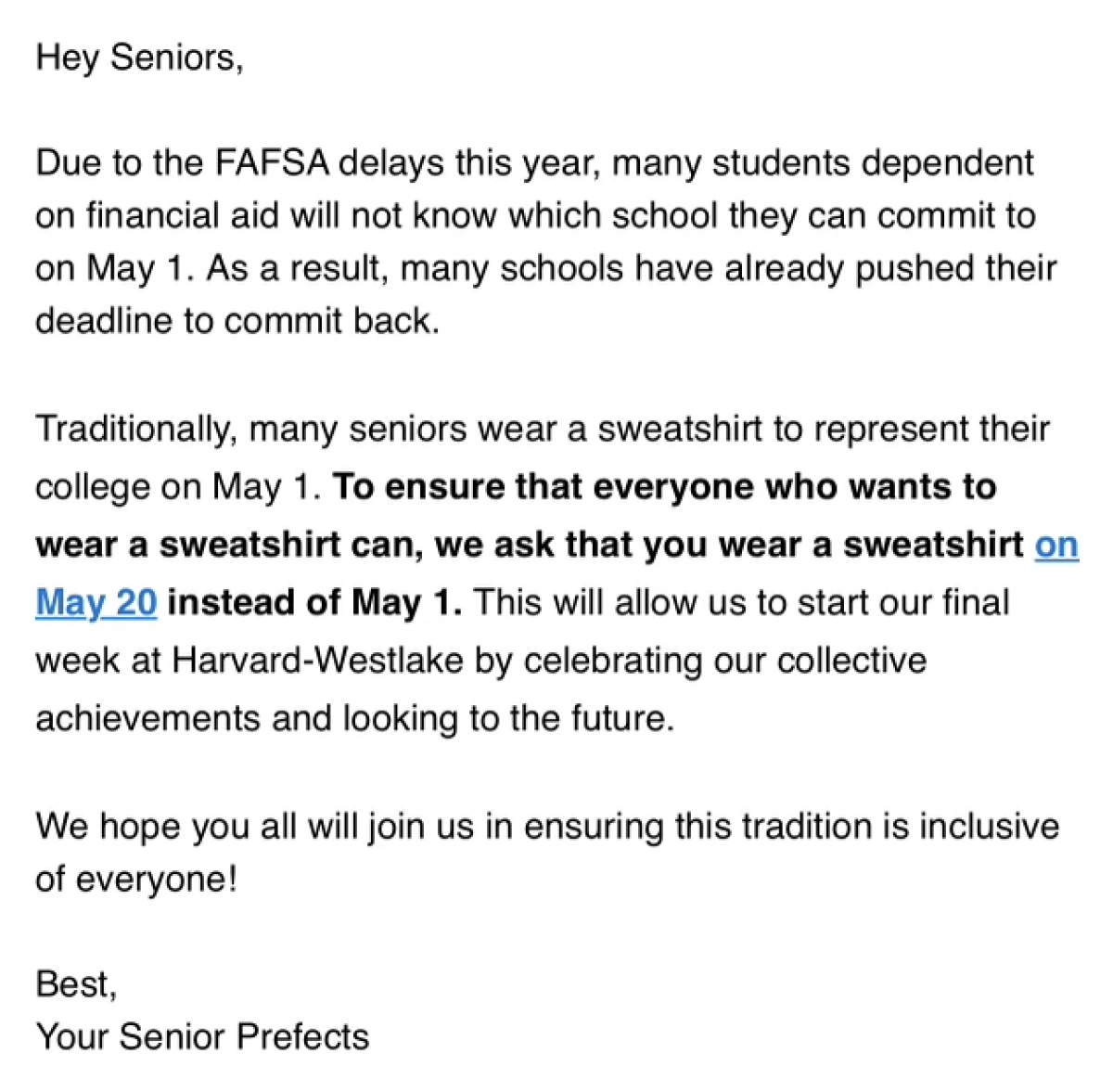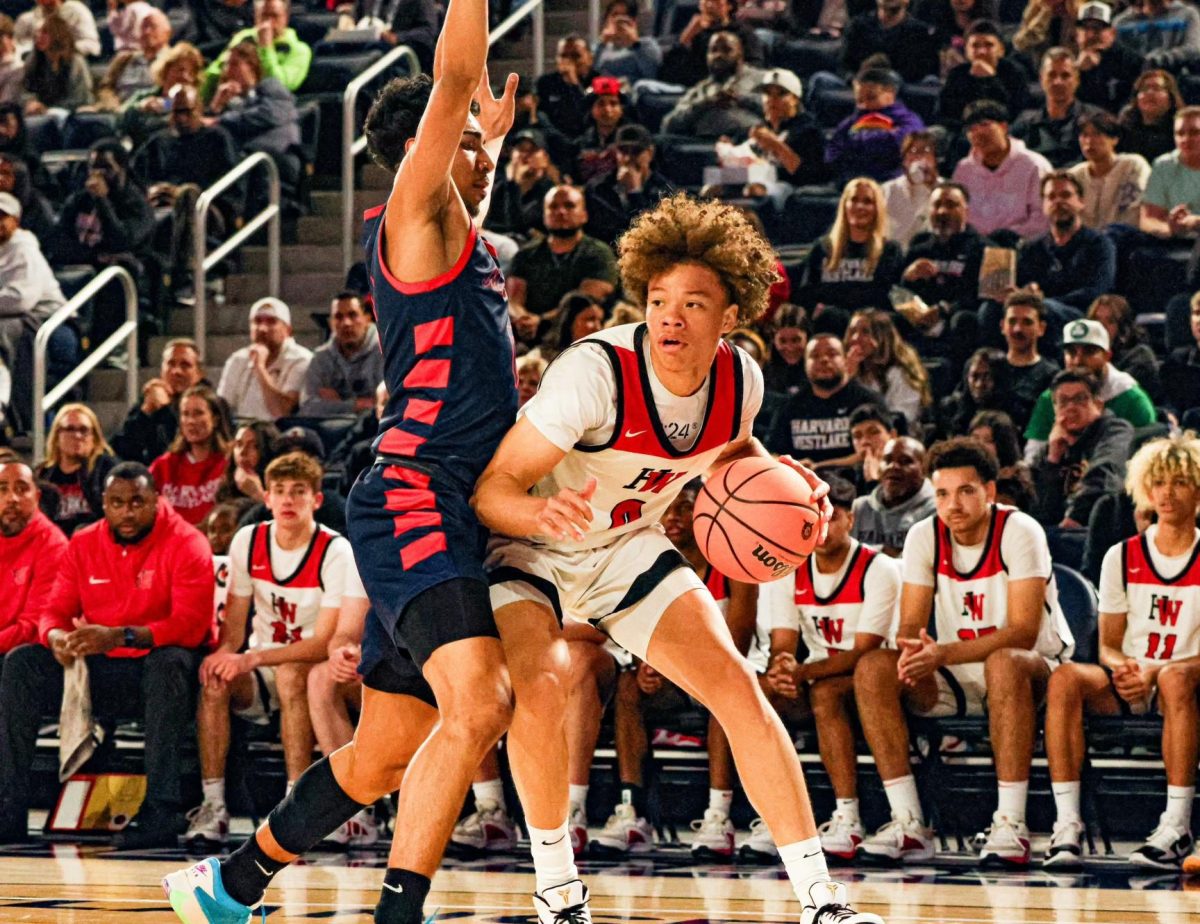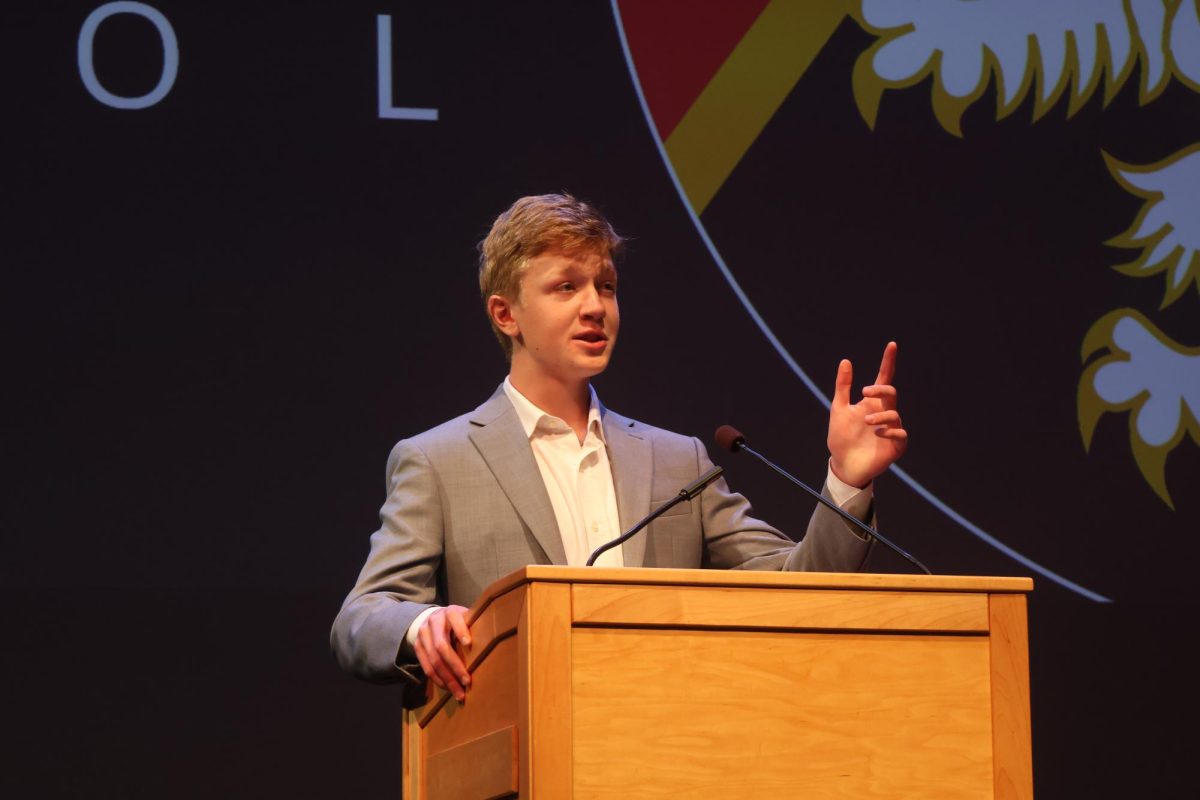Jewish Club hosted StandWithUs Senior Educator Charlotte Korchak at a speaker event in Ahmanson Lecture Hall on Oct. 27. Korchak, who visited the school Oct. 6 one day before Hamas’ terrorist attacks on Israel, spoke about the collective and ongoing struggle of Israelis and some of her experiences following the terrorism as a Jew and an educator.
Korchak represents StandWithUs, a non-profit organization dedicated to educating others about Israel and fighting anti-semitism. Throughout the war, she has spoken on social media platforms on behalf of StandWithUs, briefing the public about the war and addressing misinformation. Before coming to the school Oct. 27, she traveled to Canada for a week to speak to various schools about the war, and has since then visited institutions such as the University of California, Los Angeles (UCLA) and the University of Southern California (USC) to speak at Jewish campus organizations.
Following the attacks, Korchak briefly returned to her home in Israel. She said her visit to Jerusalem allowed her to grieve with the Israeli people.
“Going home was really necessary,” Korchak said. “I needed to be there, I needed to see my parents and I needed to be back with my people. I needed to be in a place where there were no arguments, baits and false media. I needed to be in a place where we were all mourning and grieving together. And you felt that in those streets, the emptiness wasn’t because of rockets. In Judaism, we sit Shiva, [where] you sit seven days after somebody dies. It was like we were all collectively sitting Shiva. I needed that, I needed time to grieve and to mourn. It was really helpful to be home.”
Korchak said the attacks on Israel have deeply changed her since she last visited the school.
“I’m a different person than I was three weeks ago,” Korchak said. “If you were here three weeks ago, you heard a Charlotte that tried very hard to maintain hope and tried very hard to preach empathy and compassion and understanding. For those who weren’t here, I went through terror in Israel when I was a child, losing three friends in one suicide bombing. I genuinely thought [the Second Intifada] would be the worst time period in Israel that I would have to live through until Oct. 7, when my whole world came shattering down. I’m a different person [now] and I’m sometimes scared of some of the things that I feel.”
Jewish Club leader Charlotte Newman ’24 said she felt a personal connection to Korchak’s shared sentiments.
“I’ve been listening to [Korchak] speak for a couple of years,” Newman said. “Throughout the war, not only have I seen her on social media and stuff, but every couple of days, she does a briefing for StandWithUs. My parents always put her on the TV or play it in the car. So even though I don’t really personally know her, I feel like I do know her really well. It makes it all the more personal to have her come [visit the school], and it makes it all the more emotional [for me] when she’s getting emotional about something that I’m already emotional about. I think [that was] a collective feeling for everyone there.”
Jewish Club member Eliana Schaffer ’25 said she was moved by Korchak’s uncharacteristic lack of hope.
“I just think seeing someone who is generally an advocate for [positivity] and collaboration have so little hope in the way she talks [was deep],” Schaffer said. “Seeing someone who’s such an advocate for peace and hope to be unable to show that for the rest of us, and [her as a] leadership figure not [being] able to hold her composure, was just pretty impactful on the [audience]. It was more so her composure than what she said that kind of really reminded me of the severity of the situation.”
Korchak said her job as an educator has been to combat ignorance and show the public the true nature of the terrorism.
“From the moment [the war] began, my job became to show and prove it to people,” Korchak said. “So I had to look at every photo. I had to watch every gruesome, despicable video. And meanwhile, I’m supposed to prove [that it happened]. To some people, [us] saying that it happened wasn’t enough. [The public said], ‘Show us, prove to us that they killed your babies.’ It’s a stupid discussion. ‘Does Hamas really decapitate babies?’ Does it matter? I’ve seen everything [at this point]. [Some people] in the world have clearly demonstrated that [they think] Jewish blood is cheap.”
Newman said because the war may continue to impact Jewish students, the school should remain considerate.
“The support that the Jewish students need doesn’t and [will not] stop in a week or even two weeks,” Newman said. “That’s going to be difficult for the school to understand because, to a certain extent, it might seem like, ‘Oh, well, it’s not here in the [United States], and it’s been a certain amount of time, so the student should be able to get over it.’ I don’t think that’s from any place of malice, but a lack of understanding of how [the war] really impacts Jewish students. But I have confidence that the school will come through for us, because I trust what the school says about wanting to be there for all their students, and I’m sure that they will.”
Korchak said that Jewish students should continue to prioritize their mental well-being and promote understanding of the war.
“As a community, I think we need to make sure that the Jewish students are taken care of in terms of providing them services to make sure that their mental health is maintained and that they feel safe on campus,” Korchak said. “The students, Jewish or non-Jewish, have to try to talk to their peers, in order to try to help them understand what’s actually going on and to make sure that they never forget Oct. 7. The Jews will come out better [than before] and the nation of Israel will always continue to live.”































